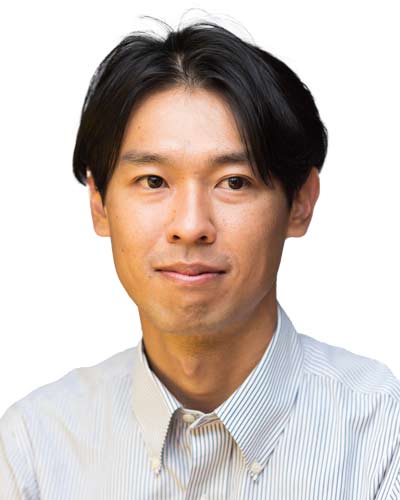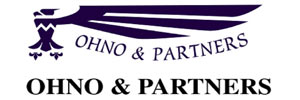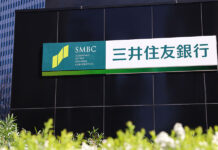As innovation advances modern enterprises, Asian jurisdictions are competing to offer businesses maximum patent protection to secure their intelligence capital
In the US, third-party opinions can be submitted as amicus curiae briefs, which have been actively used. In contrast, Japan did not have a statutory system for soliciting third-party opinions in litigation until April this year, when a number of legal amendments that institutionalised amicus curiae practice for patent and utility model infringement cases went into effect.
In patent infringement lawsuits, judgments granted on specific disputes between parties may affect many third parties. For example, technologies such as the internet of things and artificial intelligence have been rapidly developing, and these technologies are utilised across multiple industries. Court decisions on such technologies will inevitably affect many industries. In addition, a decision on standard essential patents has a significant impact on other countries. In such cases, it is appropriate for the court to solicit opinions widely from third parties and make a decision based on such opinions.

Attorney at Law
Ohno & Partners, Tokyo
Tel: +81 3 5218 2339
Email: tadah@oslaw.org
In the 2021 amendment of the Patent Act, Japan implemented a new system for soliciting third-party opinions.
Japan has experienced agreement-based solicitation of third-party opinions. In Samsung v Apple (2014), the IP High Court solicited third-party opinions regarding the exercise of rights based on a fair, reasonable and non-discriminatory declared patent due to the importance of the issue and its significant impact, but it was based on an agreement of the parties. However, it is often not easy to obtain the consent of both parties, and the availability of such an agreement-based approach was very limited.
The recent amendment allows the court to solicit opinions based on a motion by one party without agreement. This is a huge difference from the previous practice.
REQUIREMENTS FOR THIRD-PARTY OPINION
Under article 105-2-11 of the amended act, the solicitation system tries to balance the adversarial litigation system and the need for sufficient information for the courts. The requirements for the third-party opinion solicitation reflect the compromise of these two elements.
SUBJECT CASES
The solicitation system is available for proceedings in the first instance and in the appellate instance of infringement suits based on a patent right or exclusive licence right (see also article 65(6) of the Patent Act, and article 30 of the Utility Model Act). Cases seeking rescission of patent office decisions are not covered by this amendment. In the future, the scope of subject cases might expand if the regulators find this system helpful.
MOTION BY A PARTY
To solicit opinions from third parties, a motion must be filed by at least one party. The court alone may not initiate solicitation without a motion. This reflects the adversarial principle of Japan’s litigation system.
NECESSITY
The court shall determine the necessity of soliciting opinions. In doing so, the court shall hear the opinions of the parties and consider various circumstances, including the difficulty of obtaining evidence for the parties, and the influence of the judgment on third parties.
The subject matter of opinions includes not only legal issues and rules, but also commercial practices and actual business situations. This will help the court understand the surrounding circumstances of the disputes and the influence of its decision.
It is also often difficult for litigants to obtain such information, so this will help litigants as well. On the other hand, it is not usually permitted to use this system to collect prior evidence. Parties are expected and responsible to search and collect such evidence by themselves under Japan’s system.
OPINIONS OF OTHER PARTY
The court must hear the opinion of the other party. It is often expected that one party wishes to solicit opinions but the other party opposes under litigation strategy. The court must hear the opinions of the other party, but the consent of the other party is not required. This is a compromise between the adversarial litigation system and the need for information for the court.
In Samsung v Apple, the court solicited opinions based on the agreement of the parties. In contrast, this amendment does not require the consent of the other party, which makes it easy to solicit third-party opinions. This is the significance of the amendment of the Patent Act.
SCOPE OF SOLICITATION
The court solicits opinions from a wide range of general third parties without limitation. Therefore, anyone, including foreign individuals and corporations, may submit opinions. It is expected that the Japanese court hears opinions internationally to make globally balanced decisions.
SUBMISSION OF EVIDENCE
The opinions should be submitted to the court, but they do not immediately become evidence. The parties should review and choose the opinions, and then submit the chosen opinions as evidence to the court. The pros and cons of such a system design were debated during the legislative process. The court does not review all the opinions, but both parties are responsible for selecting and submitting opinions.
It will be disappointing for a third party if its opinion is not reviewed by the court, but this is a consequence of the adversarial litigation system. Also, this saves the resources of the court from reviewing a huge number of opinions. When an opinion in a foreign language is submitted to be used as evidence, the party submitting the opinion is expected to prepare the translation, as per when submitting a document in a foreign language. This means that third parties do not bear the translation cost.
SUBMITTING OPINION AS THIRD PARTY
The request for third-party opinions will be posted on the website of the IP High Court (www.ip.courts.go.jp). In some cases, the request may be posted in English. Therefore, it is recommended to check the website if a concerned party is interested in submitting an opinion for a certain case.
In addition, the Japanese Patent Office indicates that it is acceptable for litigants to approach and request third parties to submit opinions, and provide compensation for preparing opinions, as part of legitimate litigation activities. In many cases, opinions will be submitted in response to such approaches and requests. As a result, many third-party opinions will be favourable for one party. This system will be strategically used by litigants, but it should be accepted as a result of the adversarial litigation system.
As third-party opinions are requested to aid the court in determining certain legal issues under Japanese patent law, it is recommended to consult with a lawyer or a patent attorney admitted in Japan to submit an effective opinion. Their advice will help third parties prepare opinions persuasive to Japanese judges. In order for the court to make a well-balanced decision reflecting the positions of third parties, active use of the system is preferable.
CONCLUSION
Japanese courts have highly specialised divisions dedicated to IP-related cases, which ensure the quality of their decisions. A common misunderstanding is that it is difficult for a patent owner to win a case in Japan. However, the situation significantly changed recently, and Japanese courts have shown a pro-patent tendency in the past five years.
Furthermore, the new system for soliciting third-party opinions has been established to make well-balanced decisions considering the impact on society. The Japanese patent litigation system is getting more trustworthy and useful for global companies.

OHNO & PARTNERS
21/F Marunouchi Kitaguchi Building
1-6-5, Marunouchi, Chiyoda-ku
Tokyo – 100-0005, Japan
Email: ohnos@oslaw.org
Tel: +81 3 5218 2331




























